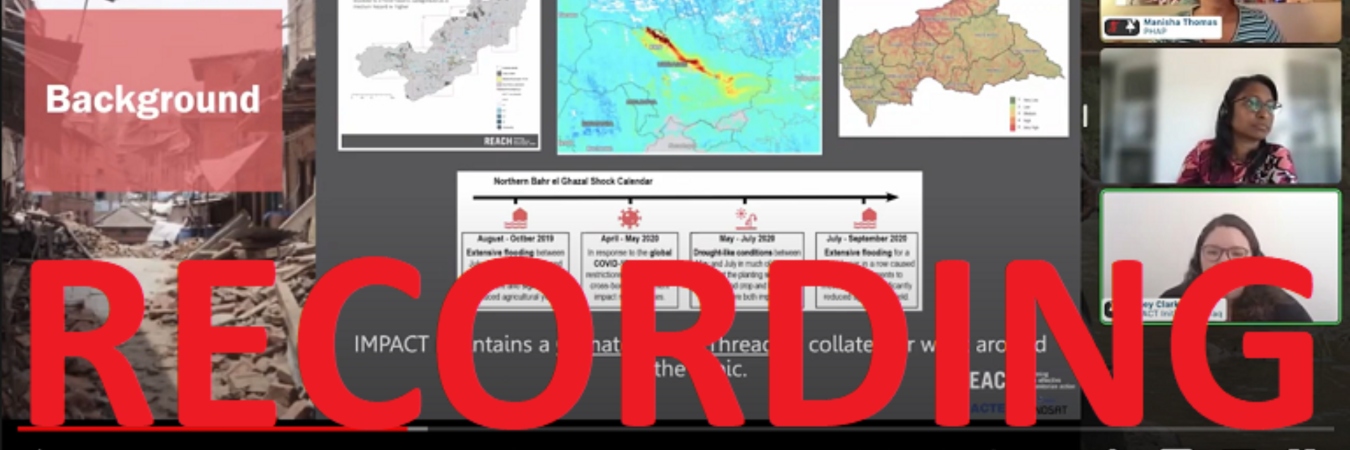
Now available-Recording of Webinar on Commitment #4 of the Climate and Environment Charter
Access the audio and video recordings of the ICVA and PHAP webinar exploring Commitment #4 of the Climate and Environment Charter
On 28 April, PHAP and ICVA organized session 5 of the Learning Stream on Climate Change and Humanitarian Action that looked at Commitment #4 of the Climate and Environment Charter. Commitment #4 encourages organizations to better understand climate and environmental risks in order to calibrate responses adequately. This includes using meteorological data and local and indigenous knowledge about patterns of variability to provide risk analyses that are comprehensive, reliable, and relevant.
Quynh Tran, Humanitarian Affairs Officer at UN OCHA gave participants a glimpse of why climate and environmental risk data is important in humanitarian contexts and how to access and use Humanitarian Response Plans – HRPs. She also shared some of the main points from OCHA’s forthcoming report ‘No Return to Normal': The Growing Humanitarian Climate Emergency.
Providing participants with a briefing on their work in the Iraqi context, Casey Clark, Deputy Country Coordinator with IMPACT Initiatives, shared their perspectives on how climate risk information and mappings can be used for decision-making and programming for early warning, early action, and preparedness.
Vincenzo Bolletino, Director of Program on Resilient Communities / National NGO Program on Humanitarian Leadership at the Harvard Humanitarian Initiative addressed the importance of understanding community knowledge and perceptions in light of disaster preparedness and response in the Philippines.
As part of ICVA's and PHAP's Learning Stream on Climate Change and Humanitarian Action, this event followed the launch event of the series that introduced the Charter, the first session of the webinar that examined adapting to the impacts of the climate and environmental crises, the second session on maximizing the environmental sustainability of humanitarian work, the third session on practical tools and initiatives for reducing environmental impact in humanitarian action and the fourth session on embracing the leadership of local actors and communities in climate action.
During this interactive event, participants were encouraged to provide their input in various polls. You can find the results of these, together with the video and audio podcast format recordings of the discussion on the event page.
Access the recordings